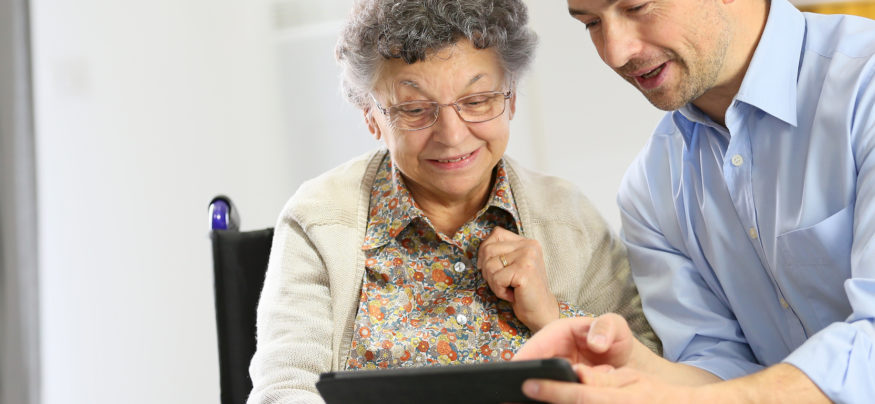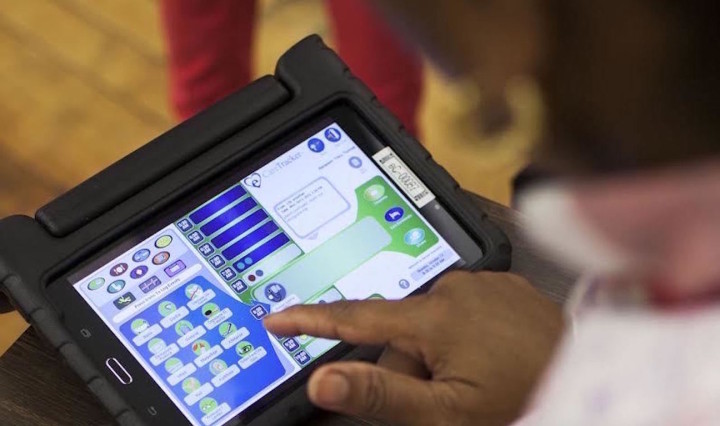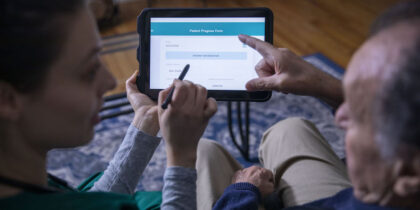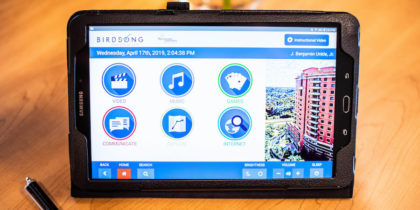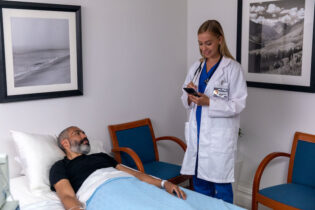Home health is an enormous and growing corner of healthcare — the Centers for Disease Control and Prevention reports that as of 2014, there were over 12,000 home healthcare agencies in operation. This is largely unsurprising, as the elderly population is growing right along with patient demands for more convenient and comfortable care options.
With this growth comes the need for tech solutions that not only enhance healthcare quality but support seamless communication and workflows as well.
Mobile and Home Health Processes
The most obvious benefit of mobile devices in the home healthcare space is connection, according to HIT Consultant. The connections in home healthcare are more complex by nature than in traditional healthcare settings. Patients are not only being monitored remotely — they’re also being physically visited in person by caregivers who must maintain a two-way connection with their home organization or facility while also gathering information from and educating the patient. Mobile devices (including tablets, phones and wearables) close the gap between these elements, providing patient history notes to caregivers in the home while returning information to doctors and staff at remote locations. Caregivers are also able to remotely track patient location and motion, giving the elderly additional independent living options with the added bonus of improved caregiver decision-making.
While on-site, caregivers have access to up-to-date data via their own mobile devices, bringing them convenient access to medical calculators, symptom guides and drug documentation that would have previously been out of reach or prohibitively inconvenient. The result of all this is an opportunity for improved workflows, more efficient processes and overall improved care results.
Home health tech is more advanced than you think.
Here's how it can improve employee communication and patient outcomes. Download Now
New, Sophisticated Advancements
Mobile solutions have grown to extend well beyond the patient-facing side of home care: Solutions like Homecare Homebase’s platform are focused on giving medical professionals across the board the tools they need to administer the highest quality of care.
Homecare Homebase’s solution built around Samsung Galaxy tablets addresses three areas of the home health process. Workflow management is simplified by giving clinicians diagnosis-based answers to patient needs as well as the ability to document patient information. Revenue management captures all billable activities, applies the most current billing requirements, and ensures improved overall revenue cycle management and cleaner claims. Agencies are also better able to track staff certifications and licensure through the system and better manage limited resources through scheduling tools and staff planning.
As home health advances and more baby boomers exercise the option to age at home, expect to see even more innovation in this area, especially in navigating changing regulations and complex value-based care initiatives.
Interested in learning more about the future of healthcare? Find out about the technologies driving changes in the industry here.
